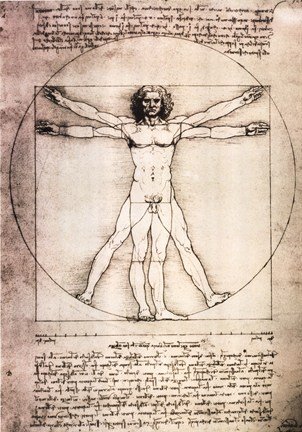The Will to Live as the "on/off" switch of Human Beings

What if somebody told us that humans have a "switch" that works like an on/off button that determines whether we live or die? It would seem absurd, given what we know of our bodies (there is no such switch evident) however that switch is not in the body - it is in the mind. And the "on" or "off" position is determined by our broader "Will to Live".
People who are mostly into survival-oriented living don't even have to think about the will to live because they are too busy trying to escape death - by doing whatever is necessary to keep themselves alive. Their will to live is a given.
On the other hand, people who have sorted out their basic survival, often feel the need to ponder about life's broader purpose, their expectations and goals, their role in life - things like that. For some it gets darker, like whether one's reality experience is even worth living - given their problems or their apparent inability to find a greater purpose in their life.
While all these may seem harmless thoughts, in reality they are very potent. In fact these thoughts that one has could even be harmful if one's internal "scale" is tipped towards the conclusion that life is not worth living - however subtly one might feel about this. It does not have to be articulated as a death-wish for the subconscious to register that one is not very enthusiastic in continuing their life experience.
Robbie Williams, in the song "Feel" says something to the effect: "I don't want to die, but I ain't keen on living either". This is a very eloquent way of putting the lack of motivation to live. This lack motivation is, in effect, a subconscious process of switching down our body to the "off" position.
People are searching for the secret of longevity for millennia. They are also trying to understand why people die from things like auto-immune issues, cancers, heart problems etc. Well, they are all orchestrated by one's Will to Live - which is the internal "switch" on whether one "wants" (indirectly) their body to live and regenerate, or decay and shutdown. But that "desire" is indirect and generally speaking, very rarely a conscious one.
Insurance companies know that a lot of deaths happen when people reach retirement age: Once people feel not-active, they subconsciously admit to themselves that they don't really have a reason to live - and death follows a while later. There's literally a spike in deaths from people's subconscious giving the indirect "shutdown" order to their bodies.
On the other hand, you see businessmen and politicians, well into their 80's and 90's and going strong because they feel they have a purpose or an activity that keeps them going. Their body is "complying" with the subconscious directive of one's Will to Live - which in these cases is generated indirectly (I want to do X, thus my body must be in shape).
A large number of deaths -from what superficially appears as "disease"- also occur from the lack of one's internal motivation to continue living. This can compound pretty fast if one gets a disease and the disease has pretty bad symptoms. Such a state can heavily tip one's internal scale into the downward spiral of a frame of mind which says "yeah, it's not worth continuing..." - which the subconscious will register and act upon by further degrading the body in order to accommodate one's indirect desire to die.
It may sound simplistic, or even "weird", but if one really wants to live, and decide to do so, they are capable of living through almost anything - and that includes cheating time for extra decades of higher quality living. It's like a Universal Causality Equation that is driven by one's Will and which cannot produce any other outcome.
From the broader perspective of humanity, the same equation and "embedded switch" which is set to ON or OFF on a subconscious level, allows the "thinning of the herd" for those who are not very "keen" into living: Even a flu can kill one who is not willing to live yet even the most serious health problems, or accidents, may not terminally affect the one who is determined to live.
While we have been taught differently (that external circumstances play a big role in whether we live or die), in reality we have a very large say into what happens at any given moment. Keep that in mind as it may save your life in the future - if you only remember that living or dying is ultimately a choice.
Your choice.
Hello @alexgr,
Congratulations! Your post has been chosen by the communities of SteemTrail as one of our top picks today.
Also, as a selection for being a top pick today, you have been awarded a TRAIL token for your participation on our innovative platform...STEEM.
Please visit SteemTrail to get instructions on how to claim your TRAIL token today.
If you wish to not receive comments from SteemTrail, please reply with "Stop" to opt out.
Happy TRAIL!

Yup, this is what happened to Debbie Reynolds after her daughter Carrie Fisher died.
Exactly.
That's indeed a pretty drastic example of losing the will to live and dying in such a short time frame (less than a day)...
The biggest way in which this issue is relevant is the anthropic principle. In order to travel light years to other planets, organisms would likely need to genetically engineer themselves out of all the constraints natural selection had placed on them. Since life is mostly Freudian motivated, doing so might also delete the will to live at all. Conversely, you might be engineering sociopathy or other such traits as well that somehow doom the species in the end.
Hmmm.... thinking about this in terms of our future, if we start developing tech for (serious) space travel, I think the first candidates will probably be people who are already doomed to die (terminal patients) / have already lost their will to live, due to the nature of the one-way-trip (it's unlikely that the first trips will be two-way). They'll psychologically compensate this sacrifice with a part of Freudian motivation to write history and leave some kind of legacy - like "first man on Mars".
(Alternatively, scientists will just use AI robots. By 2025+ it'll be possible to eliminate the human component and nobody will need to die. The AI will probably be used to set up colonies so that humans can go and find things already prepared for them.)
If they're already dying, it sounds unlikely they're going to survive for hundreds of years in a can in outer space.
They won't. I think the first space travels will be much more conservative in their targeting, like establishing a base nearby, with a one-way carrier-ship. The technical difficulties involved in getting the crew back, even from distances as close as Mars, are enormous - so they'll probably pick people willing to die (or AI-led robots). For trying to reach earth-like planets, several light years away, that'll probably take centuries indeed - unless they make some wormholes to warp time/space... that could be an option, who knows...
Woke up to this ! Feel motivated! Great post
Thanks :D
Great post!
This post has been ranked within the top 10 most undervalued posts in the first half of Feb 05. We estimate that this post is undervalued by $23.76 as compared to a scenario in which every voter had an equal say.
See the full rankings and details in The Daily Tribune: Feb 05 - Part I. You can also read about some of our methodology, data analysis and technical details in our initial post.
If you are the author and would prefer not to receive these comments, simply reply "Stop" to this comment.